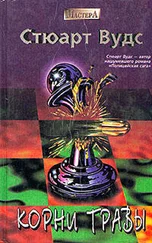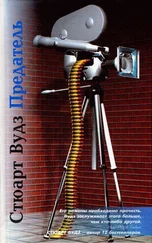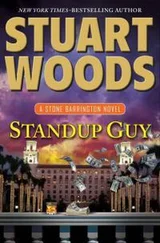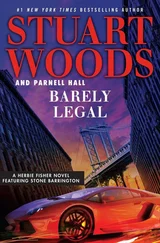“What position does Mr. Crow hold?” a male voice asked.
Liz knew the voice immediately. “Mr. Crow is the deputy attorney general for criminal prosecution,” she replied.
“Can we talk on this line?” he asked.
“I’m sorry, Mr. Crow is attending a meeting outside the office. May I take a message for him?”
“When do you think he could get back to me?”
“I should think between twelve-thirty and one.”
He gave her a number. “I’ll be waiting for the call.”
She wrote down the number; probably a burner cell phone. “I’ll see that he gets the message,” she said, then hung up. She memorized the number, then dropped the slip of paper into her shredder, which immediately ingested it.
She waited until 12:35 before returning the call.
“Yes?”
“It’s Bess.”
“Ah! Where are you?”
“At a table in a courtyard near my office.”
He gave her some walking directions. “It’s a pub called Shannon’s,” he said. “Ten minutes?”
“Five,” she replied. She put away her cell phone and began walking. Six minutes later she spotted the pub: not the sort that would attract anyone she knew for lunch. She found Sykes in a booth at the back. “Nice place you’ve got here,” she said, sliding in.
“Let’s just say that it doesn’t attract the carriage trade.”
“Nor the Justice trade.”
Sykes looked around, then back at her. “Quite right. I’ve received word that our bird is flying back to Washington for a few days.”
“That’s interesting. Where will she roost?”
“Two possibilities: the residence where your friends last made contact with her, or the family quarters of a large, white residence not too far away.”
Someone set a bowl of something before her. “What is this?” she asked, sniffing at it.
“Irish stew,” he replied. “The best in town.”
“How much competition is there?”
“Perhaps a dozen or so such pubs.”
She tasted it gingerly. “Not too bad.”
“Would you like something else?”
“What would you suggest?”
“Well, the drisheen has been praised by connoisseurs.”
“What is that?”
“Stomach of cow,” he replied, “sliced, seasoned, cooked, and cut into bite-sized pieces.”
“The Irish stew sounds delicious,” she said, filling a spoon and eating it.
“A wise choice,” Sykes said. “What do you think about our problem?”
“Well, let’s see: the last location has probably been fortified since our last visit.”
“Probably so.”
“And the alternative is guarded by a tall fence, dogs, guards armed with automatic weapons, and ground-to-ground missiles on the roof. Does either option sound inviting?”
“They both have the attraction of unexpectedness, one having been previously visited, the other suffering from complacency.”
“‘Complacency’? You think so?”
“I guess that means the previous location.”
“Not unless you can get someone inside, undetected, long enough to plant explosives,” she said. “And that someone will not be me.”
“I thought you bolder,” he said.
“Foolish, more likely.”
He reached out, stroked her forearm, and took her hand.
“Never that,” he said.
“Colonel,” she said, withdrawing her hand, “there is something you should know about me before we continue this conversation.”
“That you’re beautiful? I already know that.”
“That I’m a lesbian,” she replied.
He withdrew his hand as if her flesh were afire. “I would never have guessed,” he managed to say, finally.
“That’s the way I prefer it,” she said. “I’m afforded a wider range of company, if no one suspects.”
“Oh?”
“Most people are distrustful of others who present themselves as one thing, then turn out to be another. I find it more useful to let them make their presumptions, then follow their preconceived notions.”
“What would you say if another woman asked you directly: ‘Are you a lesbian?’”
“I would reply, ‘Why? Are you?’ And if she answered honestly in the affirmative, I would consider her as a potential lover. Men and women are not so different in the manner of their choices, as long as they’re on familiar ground.”
“And how long have you been, ah, that way?”
“You’re so delicate, Sykes. Since birth, probably before. It’s not a choice, you know. Just as you didn’t choose to be heterosexual.”
“That’s very enlightening,” Sykes said.
“I’m so happy you find it to be.”
“Now, back to the reason for our meeting.”
“Ah, yes. Can you present me with a more opportune setting?”
“Not yet.”
“Colonel, I seem to recall someone at your dinner table saying that your intelligence was inadequate.”
“I’m working on it. Do you, at your place of work, have access to the file of Holly Barker?”
“I do, if the file includes behavior indicating criminal activity or proclivity. I hardly think, given the positions she has held, that she had anything of the sort in her background. If so, it would have been discovered long ago.”
“Nevertheless, I’d like to know if she has a file and, if so, what’s in it.”
“If I can find a plausible excuse to work late one evening soon, then I know where the key is kept.”
“How about this evening?”
“Tomorrow evening would be better.”
“Call me the day after,” he said, hipping his way out of the booth. “Lunch is on me.” He walked out of the pub.
She didn’t watch him go.
Sykes felt a little sick to his stomach. He had been fantasizing about being in bed with her, but he wanted no part of a woman who wasn’t attracted to him as a man. She could still be useful, though; she was bright, brave, and willing to take risks. Maybe she would even turn up some information from those Justice files.
Elizabeth went back to her office. “Do you have an Alka-Seltzer?” she asked her secretary as she passed her desk.
“Sure,” the woman said, digging in a desk drawer and coming up with a packet.
Elizabeth dropped the two disks into half a glass of water, then watched them fizz. She drank down the bubbly stuff, burped, and rinsed the glass. Nearly instant relief from the stew, as promised.
She opened her safe and found the key to the secure file room, where old papers were kept. She went to the B drawer and looked for Barker, Holly, then took it back to her desk and started at the beginning. It made interesting reading.
Holly had been raised on Army bases in the States and in Germany. Her mother died during a flu epidemic in Germany, when the child was eight. When she was in high school her father had written to a Florida congressman, requesting an appointment to West Point for his daughter, enclosing a transcript of her high school studies. He received a negative form-letter reply, so young Holly joined the Army, excelled in basic and advanced training, and enrolled at the University of Maryland, which offered a degree program for serving soldiers. She got her bachelor’s degree in two and a half years, then applied for Officer Candidate School and was rejected. Her father wrote a letter to a man he had served under, who had known Holly as a teenager on the Army base in Mannheim, and who, by then, was a brigadier general. Holly was duly accepted into the next class at OCS.
Upon graduation, at the head of her class, she had applied for Intelligence but was passed over and offered the military police. In the MPs she consistently received outstanding fitness reports and was promoted as quickly as the rules allowed, rising to command an MP company, then, as a major, to executive officer of a regiment. There her progress ended.
Читать дальше












